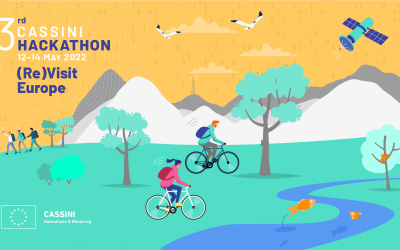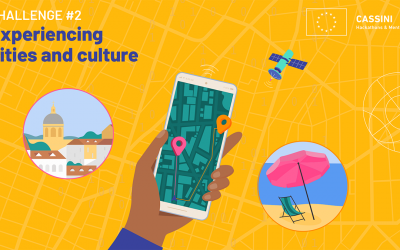
When it comes to space technology, its uses on earth are fairly known. Applications of earth observation, satellite navigation and satellite communication all ring a bell. But special use cases of these technologies can have an impact socially as well. Let us highlight some possibilities for an inclusive and equal society. Because frankly, the world needs to change.
We want to state something upfront: inclusivity is a difficult topic. Not because it’s impossible to reach, but more because it’s such a massive topic. Non-inclusivity stretches throughout society – and at the same time can be engrained in one’s brain. The fact that a lot of people are being left out of certain parts of society – even deliberately – comes in all shapes and sizes unfortunately. It can be about sex, racial or ethnic origin. Or it can be about religion or belief. And it can be about disability, location, age or sexual orientation. And we probably have missed some more examples.
Next to that, it’s not easy to talk on behalf of people who aren’t included this way. People who are facing this know best what’s wrong, and while you intrinsically want to help and want to do good – you might do so with a hidden bias. We believe by creating a more inclusive society, you need to ensure all these voices are heard, and not just your own reflection on the matter.
See? It’s that hard. That’s why we need to do something about it.
As our expertise is space business, let us propose space technology and/or applications to help out. Here are some examples.
How space technology can increase inclusivity and equality
1. Fight violence
Spot human right abuse like mass murder, human (sex) trafficking, modern slavery or forced labor from above. According to this article on Reuters, if we don’t get ready now, “inequality is going to grow”. And that was in 2018.
Enter space. There are tons of ways to harness the data out of satellites to spot human right abuse. Examples from this article in The Guardian for instance show that satellites are capable of discovering war crimes like burnt villages or mass burial sites.
2. Supporting ‘geographically challenged’ people
Remote living has its advantages, especially during this pandemic. However, hundreds of millions of people worldwide aren’t living remote by choice. And that becomes a problem when you don’t have access to healthcare.
There are countless of drone startups that usher the use of space to navigate to remote areas in the world – through a Global Navigation Satellite System like GALILEO or GPS. ESA BIC Noordwijk alumni company AVY for instance is able to be that logistics hero, and offers healthcare support to those in hard to reach areas.
3. Indirect help
Even when you understand the need to fight for a more inclusive society, it can feel like uncharted territory, especially when you yourself had the privilege to experience no such issues at all in life. That’s what we meant earlier when we said that those affected know best. And although you might not have the time or resources to listen to them, other people have. Policy makers for instance are (often) close to the matter. You can be of help to them.
By using earth observation data you can indirectly support the cause. For instance: you can find a way to provide processed space data for local, national, or even global decision makers to strengthen and define more inclusive policies. Clear and concise data in the right hands (we can not stress that enough) is a valuable tool to become a more equal society.
We hope we have inspired you to come up with ideas to make the world more inclusive. Eventually, we hope you actually take the next steps to do so. On September 12 & 13 we organise a Copernicus Hackathon, in which space based ideas are developed to support challenges like the SPACE FOR EQUALITY & INCLUSION CHALLENGE. Everyone with an entrepreneurial, technical and/or can-do mentality is welcome to join this hackathon. Because it’s ok to dream, but in this case, it’s better to act.
Need more inspiration? And learn even more surprising ways of space tech in relation to inclusivity and equallity? Then join our online Inspiration Session on August 25, 2020.


